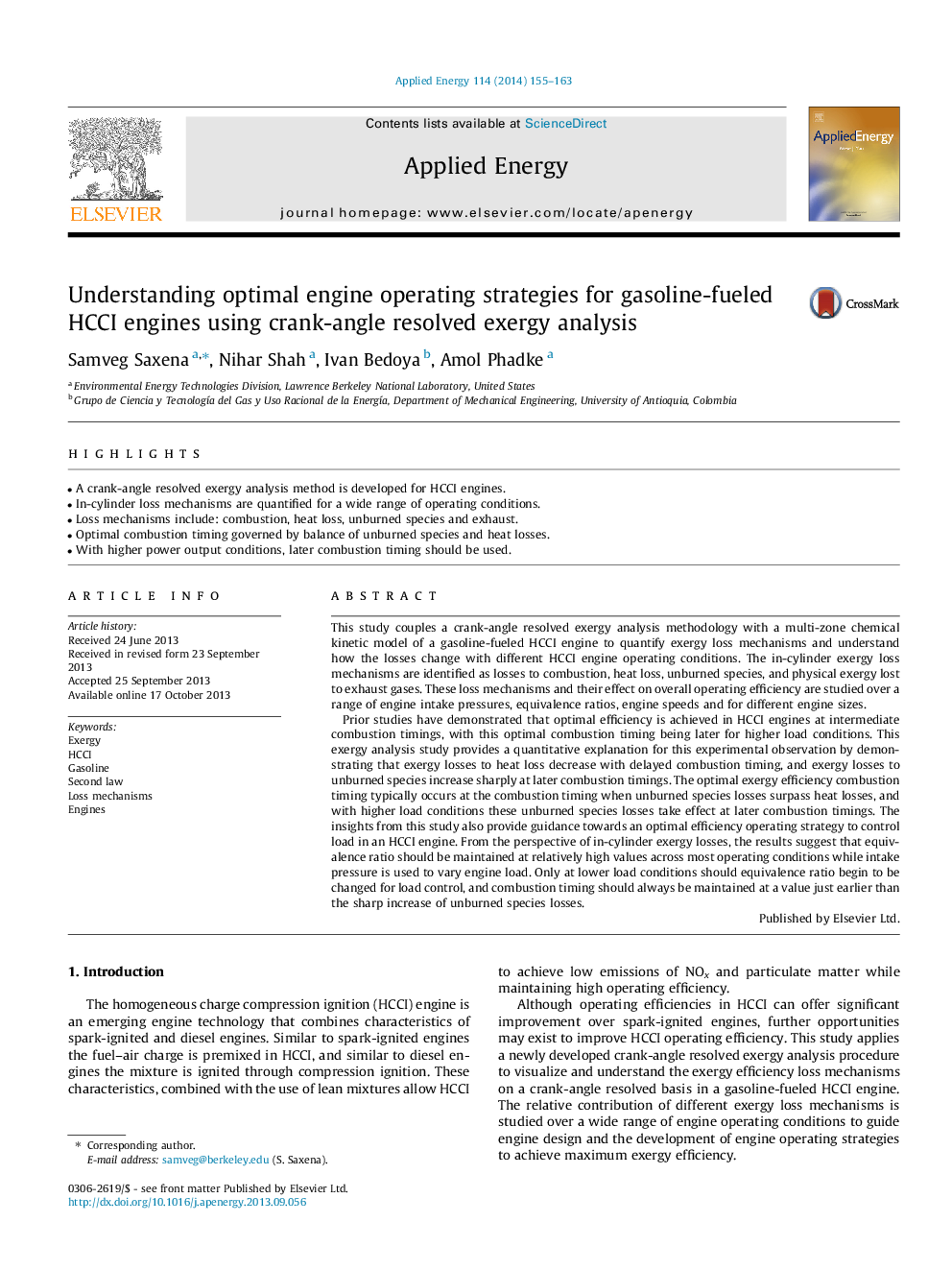| Article ID | Journal | Published Year | Pages | File Type |
|---|---|---|---|---|
| 6691424 | Applied Energy | 2014 | 9 Pages |
Abstract
Prior studies have demonstrated that optimal efficiency is achieved in HCCI engines at intermediate combustion timings, with this optimal combustion timing being later for higher load conditions. This exergy analysis study provides a quantitative explanation for this experimental observation by demonstrating that exergy losses to heat loss decrease with delayed combustion timing, and exergy losses to unburned species increase sharply at later combustion timings. The optimal exergy efficiency combustion timing typically occurs at the combustion timing when unburned species losses surpass heat losses, and with higher load conditions these unburned species losses take effect at later combustion timings. The insights from this study also provide guidance towards an optimal efficiency operating strategy to control load in an HCCI engine. From the perspective of in-cylinder exergy losses, the results suggest that equivalence ratio should be maintained at relatively high values across most operating conditions while intake pressure is used to vary engine load. Only at lower load conditions should equivalence ratio begin to be changed for load control, and combustion timing should always be maintained at a value just earlier than the sharp increase of unburned species losses.
Related Topics
Physical Sciences and Engineering
Energy
Energy Engineering and Power Technology
Authors
Samveg Saxena, Nihar Shah, Ivan Bedoya, Amol Phadke,
